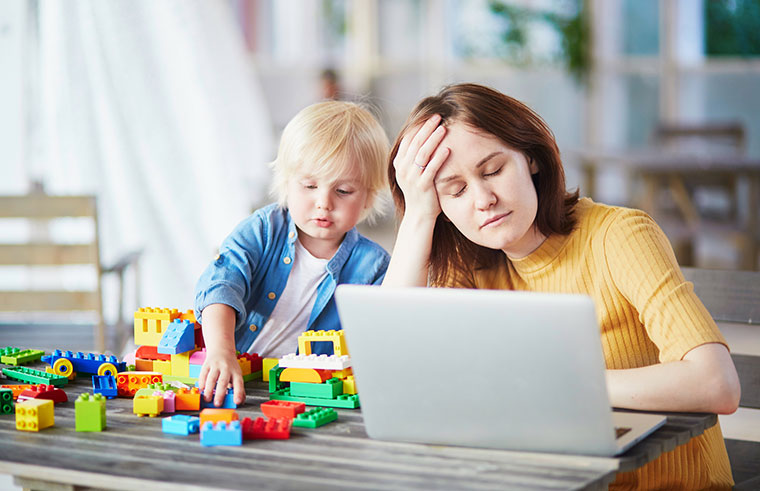Studies have shown that babies cause significant daytime dysfunction for parents. In a recent study, researchers found that mothers who breastfeed their baby at night reported being more tired during the day than those who don’t. Study participants also had to take shorter naps and experienced more fatigue in the afternoon. This is because breastfeeding stimulates the release of oxytocin, which can disrupt sleep patterns and make it difficult to fall asleep in the evening before going back on duty with your child again.
We all know that feeling of newborn fatigue and sleep deprivation, however, some babies become better sleepers than others, which can make all the difference for exhausted parents. In fact, new research shows that parents of poor sleepers are much more likely to experience daytime dysfunction, than those with babies without sleep issues.
What is daytime dysfunction?
Daytime dysfunction is when there is difficulty in carrying out daily tasks and can impede the performance of such activities as driving, working, and eating meals.
Researchers at Flinders University teamed up with New York-based tech company Nanit to carry out new sleep research that looks at the link between poor sleeping infants and the daytime dysfunction of their parents. And the results were astounding – but then again, if you’re a parent of a poor sleeper, not at all surprising.
Not so surprising results
The study showed that exhausted parents with poor sleeping infants are three times more likely to experience daytime dysfunction than parents who have children that sleep well. And it doesn’t end there. As children continue to have sleeping issues, the likelihood of parents having daytime dysfunction increases by 14 percent. According to Flinders University, sleep problems affect 20- 30 percent of infants, so this has the potential of affecting a huge number of parents.

Effective study methods
Nanit’s smart baby monitors were used to follow children’s sleep quality in 619 families. The data was then analyzed by the company’s computer vision algorithm. An infant sleep questionnaire was used to measure the presence of baby sleep problems as reported by parents. Then the researchers used the Pittsburgh Sleep Quality Index to measure parents’ daytime dysfunction.
According to co-author Professor Michael Gradisar, a clinical psychologist at the Child and Adolescent Sleep Clinic at Flinders University, the Nanit camera system, and artificial intelligence were effective in providing objective measuring of both the child’s sleep quality and the behavior of parents. “This is going to give researchers insights that we’ve not had on this scale before,” he said, “It will ultimately lead us to provide parents with the best advice to improve their infant’s sleep health.”
The study continues
Flinders University and Nanit continue to work together on another study. This one is to find the link between parental involvement and deficient infant sleep, showing that parental night-time visits were more frequent for younger children, as well as for kids with poorer sleep quality.
Meanwhile, the initial study on daytime dysfunction is an important one for parents – especially those of us who are continually sleep-deprived and keep putting salt in our coffee, forget to buy food for dinner, or find ourselves asleep at our work desk. Being up at all hours with a sleepless baby, night after night certainly takes its toll and now we finally have the research to back it up.
Conclusion:
The study shows that parents of poor sleepers are much more likely to experience daytime dysfunction, than those with babies without sleep issues.
The Flinders University and Nanit Study continue on another research about parental involvement and deficient infant sleep which will be published soon. Meanwhile, the initial study is an important one for parents – especially those of us who are continually sleep-deprived and keep putting salt in our coffee, forget to buy food for dinner, or find ourselves asleep at work desk! Being up all hours with a sleepless baby night after night certainly takes its toll on our bodies physically but now we finally have some evidence to back it up.







